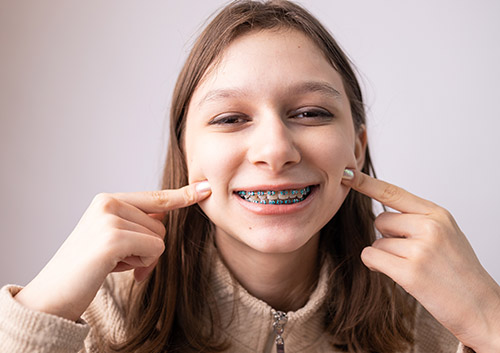Orthodontic Emergency Care
October 17th, 2025

Although major orthodontic emergencies are relatively rare, when they do happen it is important to seek immediate attention. By comparison, a minor orthodontic issue is something you can usually take care of yourself, or wait until your next scheduled appointment for care. Here are some guidelines to help you understand the difference between an orthodontic emergency and a minor issue.
Orthodontic Emergencies
Acute, Direct Injury to the Mouth, Jaw, or Teeth
Whether undergoing orthodontic care or not, if you injure your mouth, jaw, or teeth, you should see a doctor or dentist immediately. You may need an X-ray to determine the extent of your injury. If the injury affects the orthodontic appliances, they will need adjustment or possibly replacement, depending upon the extent of the injury.
Infected Teeth
It is possible for teeth to become infected following orthodontic treatment. This may or may not be related to your orthodontic appliances. If you experience pain or swelling around a tooth that gets progressively worse, seek professional care as soon as possible.
Minor Orthodontic Issues
While true orthodontic emergencies are rare, minor issues are much more common. Here are some examples of minor orthodontic issues that can be remedied on your own and/or fixed at your next office visit:
- Poking wire
- Loose bracket
- Loose elastic band
- Loose wire
- Loose appliance
- Headgear does not fit
- Lost or broken elastic band
- General soreness
Any of the above issues can happen as a result of normal usage, shifting, and wear of your braces. Eating unusually hard or sticky foods can cause or exacerbate these problems. Vigorous brushing of the teeth can also be a factor. None of these issues are emergencies unless they are accompanied by acute or prolonged pain or discomfort.
As for on-the-spot remedies, covering a loose bracket or wire with wax can be a quick fix to alleviate discomfort until your next orthodontist visit. Poking or protruding wires can be moved with a cotton swab or tweezers, or clipped down with nail clippers. Be sure to sterilize the tweezers or clippers in alcohol first. Cover any clipped wire ends with a small ball of wax.
Some soreness or small abrasions in the mouth are normal, especially with recent orthodontic work. Rinse your mouth with a saltwater solution comprised of eight ounces or warm water and one teaspoon of salt.
When in doubt, be sure to contact our Chicago, IL office with any questions, or to schedule an appointment with Dr. Karen Seder at Seder Orthodontics.




 Website Powered by Sesame 24-7™
Website Powered by Sesame 24-7™